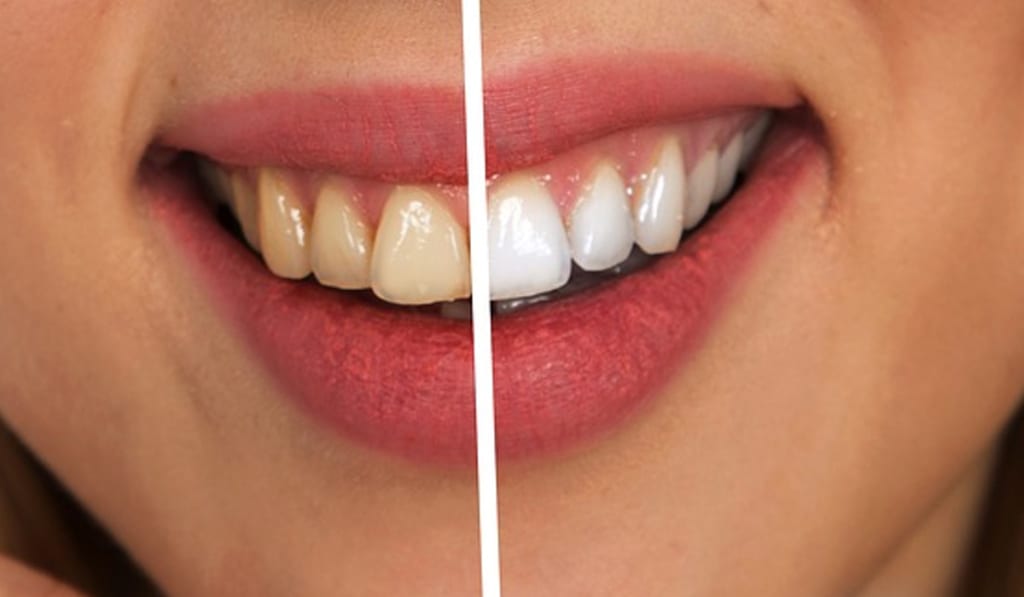7 Tips for Keeping Your Teeth and Gums Healthy
Learn more below...

Good oral hygiene is an important part of overall health and well-being. Taking care of your teeth and gums can help prevent cavities, bad breath, and other dental problems. In this blog post, we will be discussing 7 tips for keeping your teeth and gums healthy. These tips will help you maintain good oral hygiene and make sure that you are doing all you can to protect your teeth and gums. So let’s get started!
1) Brush regularly
Brushing your teeth twice a day is an important part of keeping your teeth and gums healthy. When you brush, use a soft-bristled toothbrush and fluoride toothpaste. Place the toothbrush at a 45 degree angle against the gum line, and brush in a circular motion. Make sure to brush all surfaces of the teeth, including the back molars. Brush for two minutes, focusing on one section at a time. It’s also important to brush your tongue to remove bacteria.
Replacing your toothbrush every three months is also recommended. If you have an electric toothbrush, the head should be replaced every 3-4 months.
2) Floss daily
Brushing your teeth twice a day is essential to keeping your teeth and gums healthy, but you should also floss daily to ensure that food particles don’t get stuck in between your teeth. Flossing helps remove plaque and bacteria from between the teeth and along the gum line. If you are having trouble reaching all of your teeth, consider using an interdental brush or dental picks to help get into those hard-to-reach areas.
When you floss, it is important to be gentle so that you don’t cause damage to your gums or teeth. If you feel any pain while flossing, slow down or switch to a waxed variety. It can take a few weeks to get used to flossing regularly, so be sure to stay consistent with it.
3) Use an antibacterial mouthwash
An antibacterial mouthwash is an effective way to help keep your teeth and gums healthy. This type of mouthwash is designed to kill bacteria and reduce plaque buildup. It also helps to reduce bad breath, while promoting fresher breath.
When using an antibacterial mouthwash, be sure to use it as directed on the bottle. Many products require you to swish the mouthwash for at least 30 seconds in order for it to work properly. If you don’t have time to swish for this length of time, try rinsing with water after every meal.
It’s important to choose an antibacterial mouthwash that is formulated for your specific needs. If you’re looking for a product that offers both antiseptic and anti-plaque properties, choose one with both chlorhexidine gluconate (CHG) and cetylpyridinium chloride (CPC). These ingredients are effective at reducing plaque and killing bacteria. For extra protection against gum disease, look for a product with fluoride as an ingredient.
When using an antibacterial mouthwash, it’s best to avoid eating or drinking for 30 minutes after rinsing. This will help the product remain active in your mouth and provide you with the full benefits of using it.
By using an antibacterial mouthwash in combination with brushing and flossing regularly, you can help protect your teeth and gums from decay and disease.
4) Avoid sugary drinks
Sugary drinks are one of the leading causes of tooth decay. They can weaken the enamel on your teeth and increase your risk for cavities. It’s important to limit your intake of sugary drinks, including soda, energy drinks, and sweetened tea. If you do consume them, make sure to brush your teeth afterwards. Furthermore, sugar-free alternatives are always a better choice than regular sodas and other sugary drinks.
Drinking water is a great way to keep your teeth and gums healthy. Water helps to flush out bacteria and debris in your mouth, while also providing necessary hydration. Try to drink plenty of water throughout the day to keep your mouth clean and healthy.
5) Don't smoke
Smoking is one of the worst habits when it comes to maintaining oral health. Not only does smoking discolor your teeth, but it also affects your gum tissue and increases your risk of developing gum disease. Smoking reduces the amount of saliva in your mouth, which can lead to dry mouth and a host of other problems. Studies have also shown that smoking can increase the risk of oral cancer and other serious health issues. For the best oral health, it’s important to quit smoking or avoid it altogether. If you are having trouble quitting, talk to your doctor about different methods that can help.
6) Eat a healthy diet
Having a healthy diet is key to keeping your teeth and gums healthy. Eating a balanced diet that’s rich in minerals, vitamins and other nutrients helps keep your gums and teeth healthy. Foods high in sugar, starch, and acid can damage teeth, so it’s important to limit your intake of these foods.
Fruits and vegetables are an essential part of any balanced diet. Not only do they provide essential vitamins and minerals, but they also help clean the teeth by stimulating saliva production which helps protect teeth against decay. Dairy products such as milk, cheese, and yogurt are rich in calcium which helps strengthen teeth and bones.
In addition to fruits and vegetables, lean proteins such as fish, chicken, and eggs help strengthen gums and teeth, while healthy fats from nuts, seeds, and avocado help reduce inflammation. Be sure to also drink plenty of water throughout the day, which helps rinse away food particles and bacteria.
By making sure you get the right amount of essential vitamins and minerals through a balanced diet, you can help keep your teeth and gums healthy for life.
7) See your dentist regularly
Seeing your dentist on a regular basis is an important part of maintaining good oral health. Visiting the dentist every six months for a checkup and professional cleaning can help you prevent gum disease, tooth decay, and other oral health problems. During your visit, your dentist will check for signs of cavities and any other potential issues. If any areas of concern are identified, they will be treated as soon as possible. Additionally, if you have any specific questions or concerns about your teeth or gums, you should discuss them with your dentist.
At your appointment, your dentist may recommend additional treatments, such as fillings, root canals, or crowns, to repair any damage that has occurred. They may also advise you on proper oral hygiene habits and provide you with customized tips and advice to ensure that your mouth remains healthy.
Taking the time to visit your dentist regularly is an important step in preserving your oral health and preventing serious dental issues. You should make sure that you don’t skip these appointments, and take advantage of the professional care and advice that they offer.
If you want to use my #1 way to have health gums and teeth Click Here
About the Creator
Dylan Gilder
I want to help make a change in the world by giving people quick and easy ways to shred unwanted pounds to decrease the risk of physical health issues and boost self-confidence.
Enjoyed the story? Support the Creator.
Subscribe for free to receive all their stories in your feed. You could also pledge your support or give them a one-off tip, letting them know you appreciate their work.






Comments
There are no comments for this story
Be the first to respond and start the conversation.